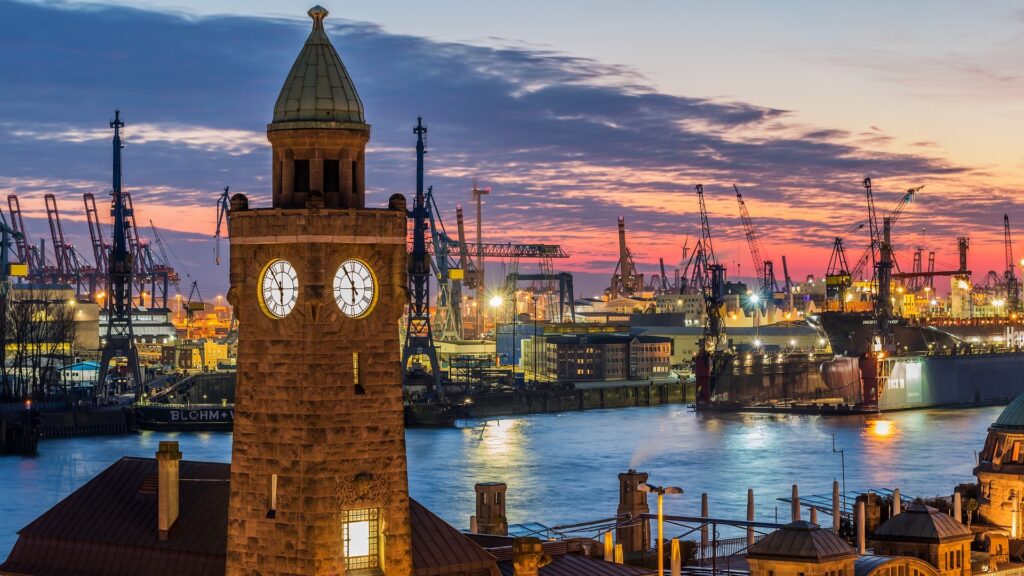Who was Wolfgang Borchert?
Wolfgang Borchert was a German actor, playwright, poet and short story writer from Hamburg. Above all, he gave a voice to the soldiers of World War II.
Born on the 20th May 1921 in Hamburg, as a young man he wrote poetry and and some plays before he decided to pursue an acting career. However, he was drafted into the “Wehrmacht” (the German army) at the age of 20. There experienced the full horrors of the war at the Eastern front.
Between 1941 and 1944 Borchert was accused of self-mutilation, making statements against the regime and imprisoned on several occasions. However, he was always sent back to the front where he contracted frostbites and hepatitis.
When he was transported to a prisoner of war camp, he fled and walked 370 miles to his home in Hamburg where he arrived ill and exhausted.
Er war achtzehn, als der Krieg ausbrach, vierundzwanzig, als der Krieg zu Ende war. Krieg und Kerker hatten seine Gesundheit zerstört, das übrige tat die Hungersnot der Nachkriegsjahre. Zwei Jahre blieben ihm zum Schreiben, und er schrieb in diesen zwei Jahren wie jemand, der im Wettlauf mit dem Tode schreibt. Borchert hatte keine Zeit, und er wusste es.
(He was eighteen, when war broke out, twenty-four, when the war ended. War and prison had destroyed his health, the famine of the years after the war did the rest. He had two years left for writing, and writing he did in these two years as somebody, who wrote in a race with death. Borchert had not time, and he knew it.)
Heinrich Böll (German writer)
Wolfgang Borchert’s years after the war
After the war, Wolfgang Borchert’s condition worsened. Subsequently, his mother was told that he would probably die within a year. Unaware of his condition, Borchert worked tirelessly with theatres. In addition to that, he wrote many short stories and a collection of poems: Laterne, Nacht und Sterne (Lantern, Night and Stars).
Laterne, Nacht und Sterne:
Ich möchte Leuchtturm sein
In Nacht und Wind-
für Dorsch und Stint-
für jedes Boot-
und bin doch selbst
ein Schiff in Not!
Lantern, Night and Stars:
I would like to be a lighthouse
at night and wind –
for codfish and smelt –
for any boat –
and am myself
A ship in need!
The Play: Draußen vor der Tür ( The Man Outside)
Wolfgang Borchert died on 20th November 1947, aged 26, only one day before the premier of his famous play Draußen vor der Tür (The Man Outside). This play follows the homecoming of Beckmann, a soldier returning from the Eastern front to Hamburg, his home city in ruins, not only physically but morally.
The reader/audience witnesses the devastating effect the war had on Beckmann and his alienation from his former home, the people and the surroundings he loved before the war. Apart from losing his parents, his wife and his home, Beckmann loses his beliefs in humanity and finds every door closed. Even nature rejects him.
This play remains to this day on the reading lists of German schools and on the play lists of German theatres since it has lost nothing of its vision against war.
Dieses Werk sollte immer wieder neu gelesen werden.
(This work should be read again and again.)
DIE ZEIT (German newspaper)
Trümmerliteratur
Wolfgang Borchert is one of the best known German authors for the genre of Trümmerliteratur (“rubble literature”). This is a literary movement after the end of World War II dealing with the devastating effects of homecoming soldiers and the situation of ordinary citizens living among the rubble of their homeland. Buildings but also hopes, dreams and ideals were in ruins. One of his best known and deeply moving short stories, Das Brot (The Bread), deals with the situation of an elderly couple after the war and the shortage of food. However, this description is hardly doing the story any justice, as it is above all a sensitive story about sacrifice and love.
Love of Hamburg
Wolfgang Borchert had a deep love for his city, Hamburg, a maritime city in the North of Germany. Therefore, many of his poems and stories have Hamburg as a background: its harbour, the Elbe and Alster (the rivers), sailors, nightlife and prominent buildings in Hamburg. Above all, born and bred a “Hamburger Jung”, he was immensely proud of his heritage. Equally, the city to this day is incredibly proud of him.

To this day, Wolfgang Borchert’s life and work is an enduring warning against the horrors of war and an affirmation of life in the face of horrendous adversity. 100 years after his birth, his work has lost nothing of its intensity and its clarity.
If you want to study Borchert and other fabulous German authors, take a look at our literature course or get in touch.
Danke, Wolfgang Borchert, for everything!


